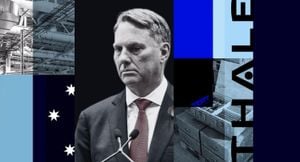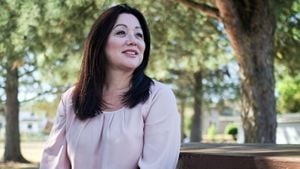Recent developments concerning madrasas and religious education regulations have sparked significant public discourse across India. Specifically, Bihar's government-funded madrasas have become the center of controversy, with allegations of promoting extremist ideologies among students.
Priyank Kanoongo, who chairs the National Commission for Protection of Child Rights (NCPCR), has expressed deep concerns about what he describes as the radicalization of children through madrasa curriculums. He highlighted instances where textbooks used in these institutions characterize non-Muslims as Kafirs, which translates to infidels.
Kanoongo's critique extends to UNICEF, which he claims has played a role in drafting these controversial educational materials. This sentiment resonates heavily amid polarizing opinions about the role madrasas should play within India's educational framework.
On August 18, 2024, Kanoongo made his thoughts public through social media, stating, "Hindu children should not be enrolled in madrasas at all." Such statements have ignited heated discussions about inclusivity and secular education.
Notably, the NCPCR reported discovering over 9,417 Hindu students studying within madrasas across Madhya Pradesh. This surprising statistic has prompted the commission to summon the state's chief secretary for clarity on the enrollment figures.
One of the alarming critiques raised by Kanoongo is centered around the madrasa board itself, questioning its existence. He argued for its dissolution, emphasizing the need for children’s primary education to occur within mainstream schools.
Critics, particularly from the Muslim community, have pushed back against these allegations, arguing for their rights to religious education. Supporters of the current educational structure contend these institutions provide invaluable education for underprivileged communities.
The situation brings to light broader challenges within India's education system, particularly the balancing act between religious instruction and secular education. Parallelly, the debate raises queries about the governance of independent educational practices and their accountability.
Many argue for reforms to address the issues within madrasas, highlighting the necessity for oversight to prevent radicalization. Others, meanwhile, advocate for the protection of religious educational institutions under the premise of constitutional rights.
While the controversy swirls, Bihar's Chief Minister has remained relatively silent on the accusations. This lack of response has fueled speculation and criticism from various activist groups advocating for greater transparency.
On the frontline of this discussion, UNICEF defended its involvement, stating they aim to provide quality educational content globally, including local contexts. They maintain their commitment to ensuring educational materials are sensitive and appropriate and have called for collaborative efforts to improve educational standards.
The coming weeks are set to witness increased scrutiny as various stakeholders—including government officials, religious leaders, and education advocates—demand accountability. Advocates for secular education hope to use this moment to drive change throughout Indian educational practices.
Concerns about the curriculum's content pose serious questions about the future of madrasas. Will these institutions evolve to align with contemporary educational standards, or do they risk being sidelined due to rising political pressures?
The issue of madrasas and their role within India's larger educational system remains unresolved. It calls for constructive dialogue about the significance of preserving cultural identities versus ensuring modern education requirements.
Both supporters and critics seem to agree on one thing—the necessity for change is now more apparent than ever. Establishing norms for what constitutes suitable educational content is imperative for building trust among communities.
Meanwhile, parents and guardians of children enrolled in madrasas are faced with tough choices. The choices they make could have lasting impacts on their children's futures, pushing them either toward traditional religious education or mainstream academic paths.
Activists continue to advocate for transparency and inclusivity, emphasizing the need for all voices to be heard. Unraveling the complex threads surrounding madrasas is likely to take time, but addressing their place within the education system is increasingly prominent.
What remains clear is the urgency for comprehensive reform and the collaborative engagement of stakeholders across societal segments. The children's right to education—free from radical ideologies and informed by diverse perspectives—is more than just policy rhetoric; it's demanded by the very fabric of society.



